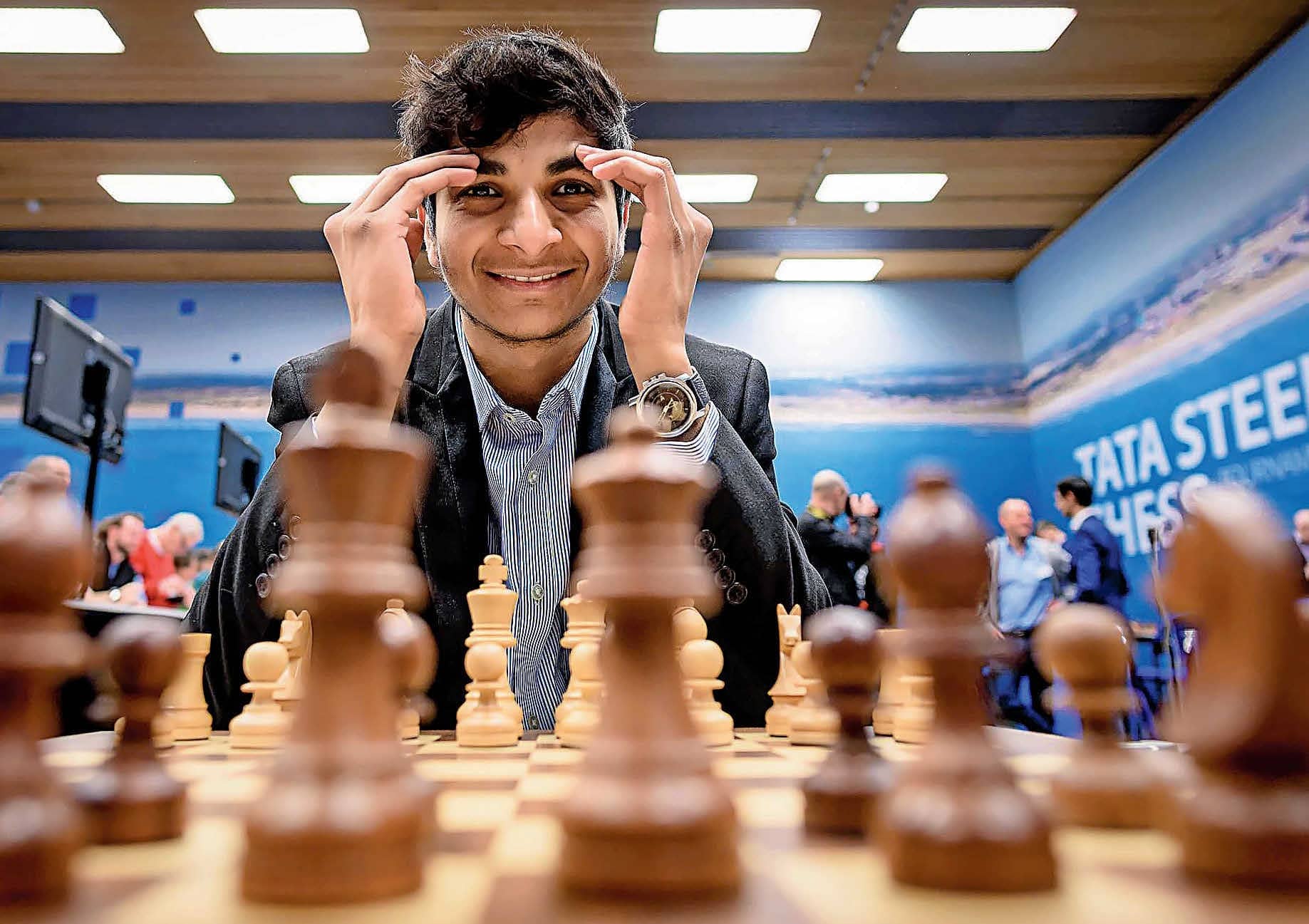
THE WIDE GRIN on his face said it all. It had been several days since Vidit Gujrathi, grandmaster and Indian team captain, and his team of 12 were declared joint winners by the International Chess Federation (FIDE) in the first-ever online chess Olympiad. The victory was yet to sink in fully. “Right now, I am just waiting for the gold medal to arrive,” said Gujrathi, who turns 26 in October.
India’s number three chess player, Gujrathi had aimed to break into the world top ten this year, before the pandemic struck. He has a popular YouTube chess channel, is a strong advocate of meditation and loves basketball.
On August 30, the Indian team made history when it was awarded the chess Olympiad gold jointly with Russia, overturning the original decision in Russia’s favour. Two junior players, Nihal Sarin and Divya Deshmukh, lost their internet connections during the last match and forfeited on time, prompting Gujrathi to file an appeal immediately. FIDE ruled in India’s favour despite protests from Russia.
The victory was every bit hard-earned and fair. It tops the Indian team’s previous best performances— in 2014, when it won the bronze in the open section, and the women’s team’s best performance of a fourth-place finish in the 2012 edition.
India was seeded seventh with an average rating of 2419 at the recent Olympiad, which had 163 nations participating, and was placed in Pool A alongside formidable teams like China and Georgia. Each team had to include one male and one female player aged 20 years or less. The top three teams from the three pools advanced to the knockouts.
هذه القصة مأخوذة من طبعة September 27, 2020 من THE WEEK.
ابدأ النسخة التجريبية المجانية من Magzter GOLD لمدة 7 أيام للوصول إلى آلاف القصص المتميزة المنسقة وأكثر من 9,000 مجلة وصحيفة.
بالفعل مشترك ? تسجيل الدخول
هذه القصة مأخوذة من طبعة September 27, 2020 من THE WEEK.
ابدأ النسخة التجريبية المجانية من Magzter GOLD لمدة 7 أيام للوصول إلى آلاف القصص المتميزة المنسقة وأكثر من 9,000 مجلة وصحيفة.
بالفعل مشترك? تسجيل الدخول

What Will It Take To Clean Up Delhi Air?
IT IS ASKED, year after year, why Delhi’s air remains unbreathable despite several interventions to reduce pollution.

Trump and the crisis of liberalism
Although Donald Trump's election to a non-consecutive second term to the US presidency is not unprecedented—Grover Cleveland had done it in 1893—it is nevertheless a watershed moment.

Men eye the woman's purse
A couple of months ago, I chanced upon a young 20-something man at my gym walking out with a women’s sling bag.

When trees hold hands
A filmmaker explores the human-nature connect through the living root bridges

Ms Gee & Gen Z
The vibrant Anuja Chauhan and her daughter Nayantara on the generational gap in romance writing

Vikram Seth-a suitable man
Our golden boy of literature was the star attraction at the recent Shillong Literary Festival in mysterious Meghalaya.

Superman bites the dust
When my granddaughter Kim was about three, I often took her to play in a nearby park.

OLD MAN AND THE SEA
Meet G. Govinda Menon, the 102-year-old engineer who had a key role in surveying the Vizhinjam coast in the 1940s, assessing its potential for an international port

Managing volatility: smarter equity choices in uncertain markets
THE INDIAN STOCK MARKET has delivered a strong 11 per cent CAGR over the past decade, with positive returns for eight straight years.

Investing in actively managed low-volatility portfolios keeps risks at bay
AFTER A ROARING bull market over the past year, equity markets in the recent months have gone into a correction mode as FIIs go on a selling spree. Volatility has risen and investment returns are hurt.